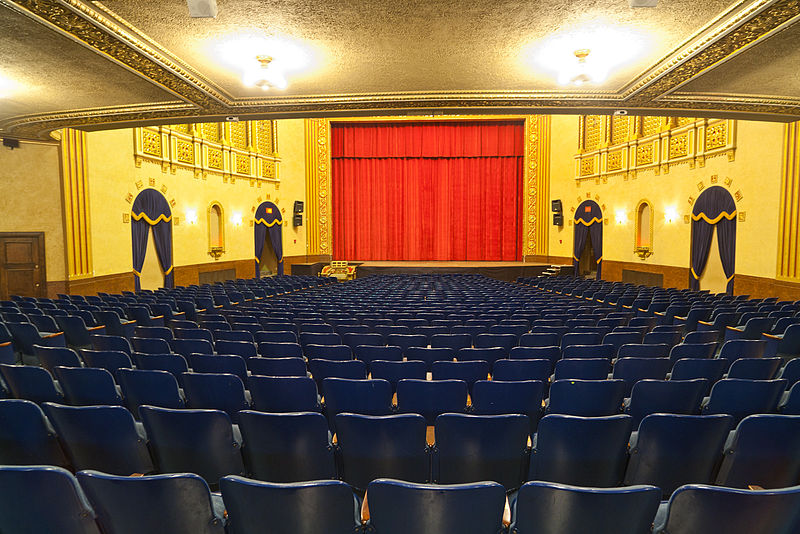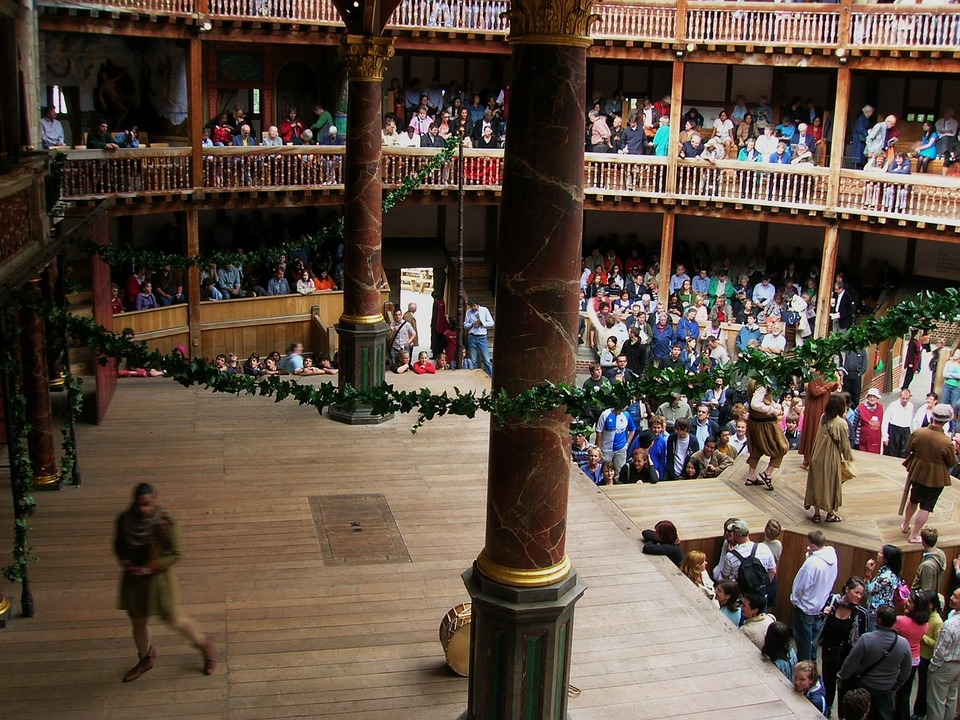
Another multiple meaning word used in drama is stage. In theater, the stage is the area where a play is acted out, or staged. In a proscenium, or traditional theater, the stage is raised.

At one time, the stage was "raked," or sloped toward the audience; the back of the stage was higher than the front. In Shakespeare's time, some members of the audience stood to watch performances in a space directly in front of the stage.

The raked stage made it possible for those viewers to see what was happening in the back. Today, however, the audience sits on a "raked" floor, which slopes down toward the stage, so even the guy in the back row can see everything that happens onstage.
The stage floor has leveled off over time, but playwrights still use the original stage directions:
Actors can go backstage to change costumes, but they should not try to upstage another actor. Upstaging is an attention-getting maneuver, similar to photobombing. Both tactics draw attention away from someone else and focus attention on you. When you photobomb, you draw attention away from the subjects of the photo and toward yourself. When you upstage someone, you position yourself behind (upstage from) a fellow actor and distract the audience’s attention, forcing the actor to turn around in order to look at you and block you from the audience. Watch this demonstration.